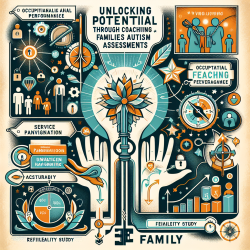The landscape of healthcare is ever-evolving, and with it comes the need for practitioners to continually adapt and improve their skills. A recent study titled “Oh, you’re my health care provider?” sheds light on the experiences of people of African descent in Nova Scotia pursuing or working in health professions. This research provides valuable insights that can help practitioners enhance their skills while promoting diversity and inclusion within their fields.
The Importance of Mentorship
The study highlights the critical role of mentorship within the Black community. The theme “Stand on my shoulders” underscores how mentorship fosters a sense of belonging and encouragement among aspiring health professionals. For practitioners looking to improve their skills, engaging in mentorship programs or becoming mentors themselves can be incredibly beneficial. Not only does it provide guidance and support to mentees, but it also allows mentors to refine their leadership and communication skills.
Practitioners should consider participating in or supporting culturally specific mentorship programs like Promoting Leadership in Health for African Nova Scotians (PLANS) or Imhotep’s Legacy Academy (ILA). These programs have been instrumental in increasing the number of students of African descent in health professions by providing a supportive network and resources tailored to their unique needs.
Building Resilience Through Challenges
Another key theme from the research is “Growing through pain,” which speaks to the resilience required to overcome race-related challenges. Practitioners can learn from this by developing strategies to support themselves and others through adversity. Building resilience involves acknowledging challenges, seeking support when needed, and maintaining a focus on personal growth.
Practitioners can also foster an environment that supports resilience by advocating for policies that address discrimination and promote inclusivity. By doing so, they contribute to a culture where diverse voices are heard and valued.
The Role of Education in Driving Change
The theme “Never the student; ever the teacher” highlights the ongoing need for individuals of African descent to educate others about race and diversity issues. For practitioners, this means actively seeking opportunities to learn about different cultures and perspectives. Engaging in continuous education on diversity can enhance cultural competency, ultimately leading to better patient care.
Furthermore, practitioners should advocate for curriculum improvements that include diverse perspectives and experiences. By updating educational materials to reflect the contributions of Black individuals in healthcare, institutions can create a more inclusive learning environment that prepares future professionals to serve diverse populations effectively.
Implementing Change for a More Inclusive Future
The final theme from the research, “Change,” emphasizes the need for increased representation and support within healthcare professions. Practitioners can play a pivotal role in driving this change by supporting initiatives that promote diversity at all levels. This includes advocating for hiring practices that reflect population demographics and supporting programs that provide resources for underrepresented groups.
Creating safe spaces where individuals feel empowered to share their experiences is also crucial. Practitioners should work towards building networks that offer support and mentorship at all stages of professional development.
Encouraging Further Research
The insights from this study are just the beginning. Practitioners are encouraged to delve deeper into research on diversity in healthcare to better understand the unique challenges faced by racialized groups. By staying informed and engaged with current research, practitioners can continue to refine their skills and contribute positively to their communities.
To read the original research paper, please follow this link: “Oh, you’re my health care provider?” Recounting the experiences of people of African descent in Nova Scotia pursuing or working in health professions.










